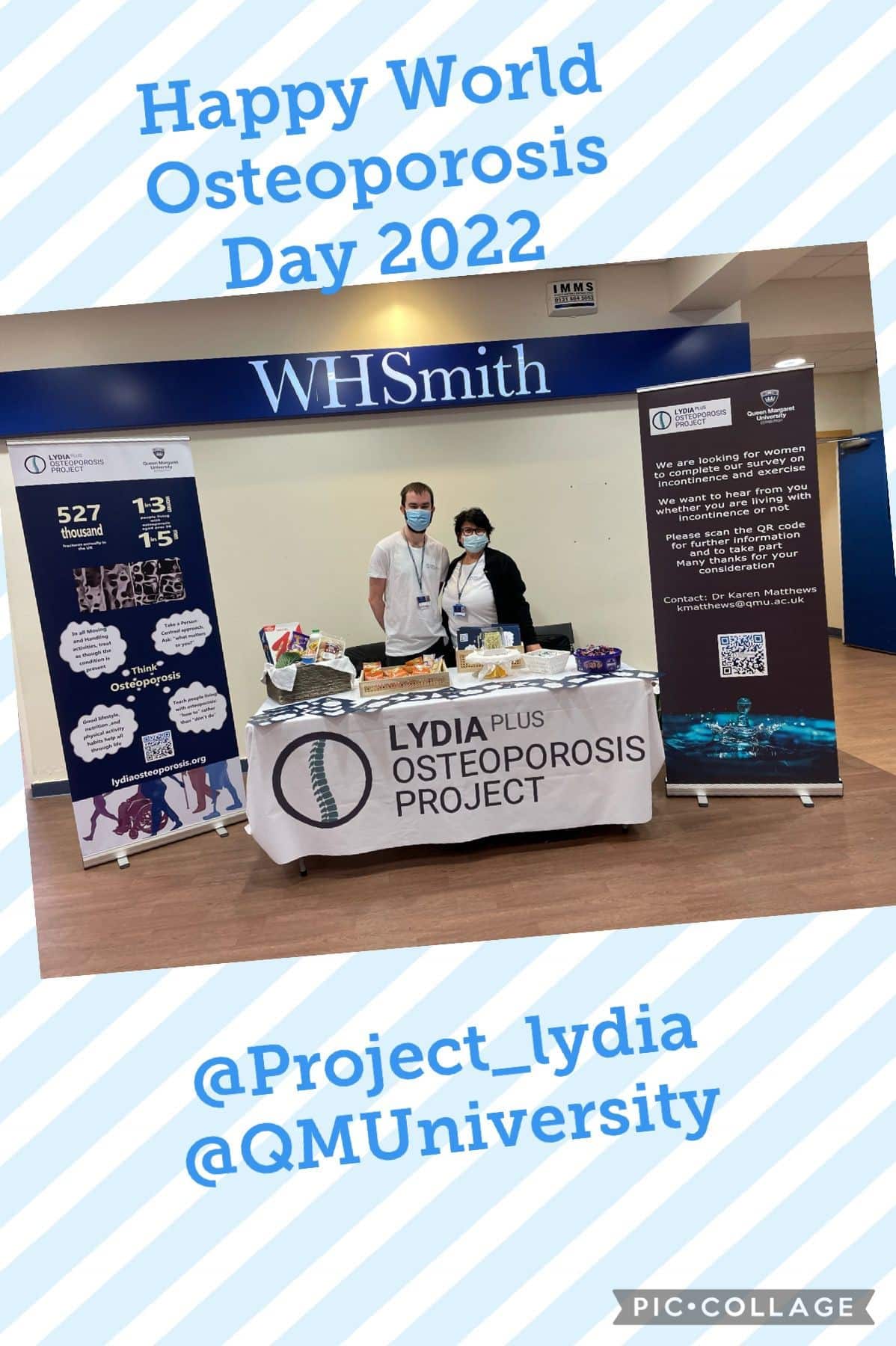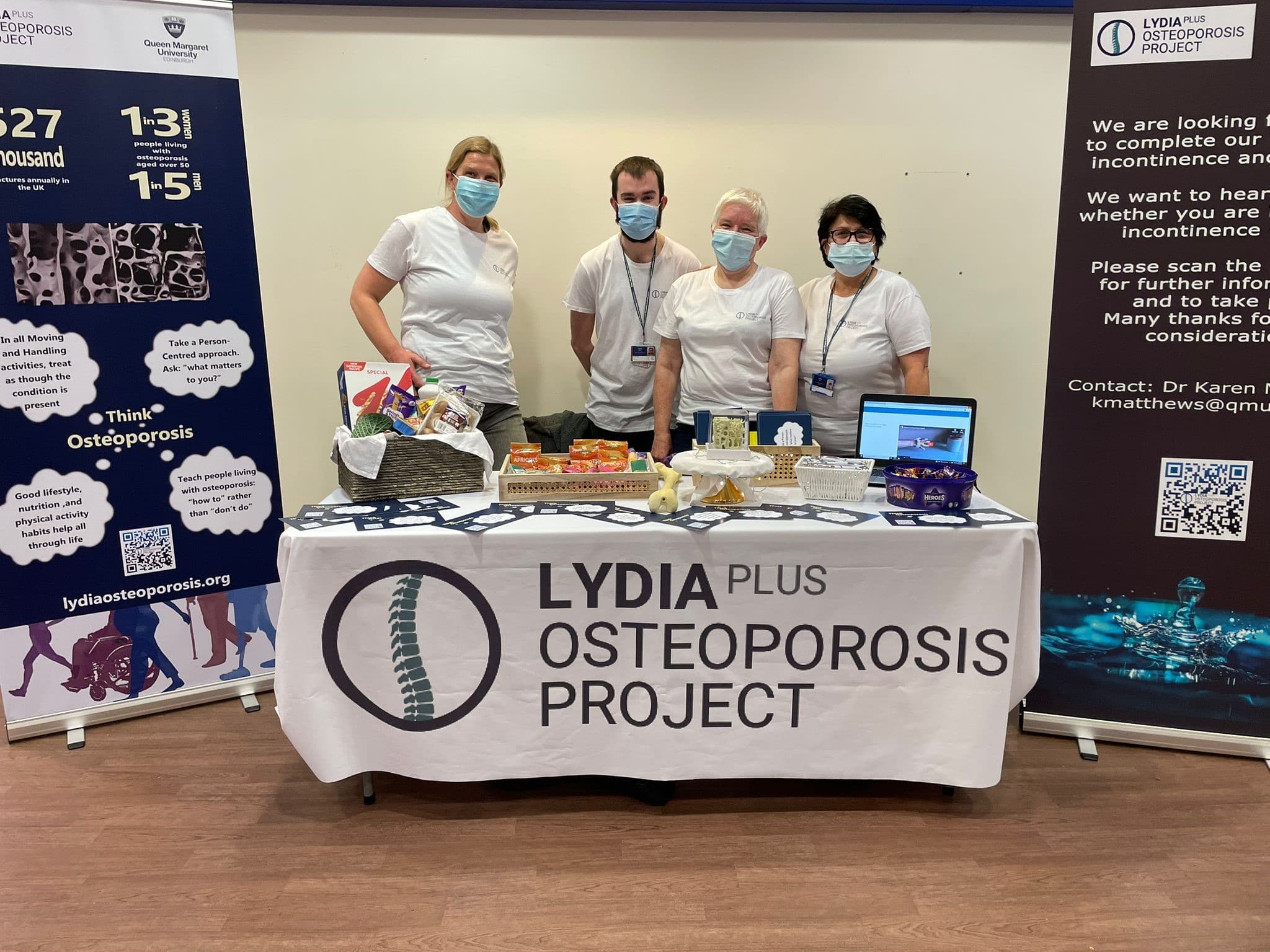We were busy on World Osteoporosis Day (20th October) with a stall at the Royal Infirmary of Edinburgh. Most of the team were there and we were ably helped by Ross, a 4th year nursing student.
We got the chance to talk to lots of people passing, who included staff from lots of areas and people visiting for appointments and visiting relatives. Many of the people we spoke to were affected by osteoporosis, either having been diagnosed themselves, or being concerned for a family member with the condition.

On reflection we found there were common themes from our conversations. People often confuse osteoporosis with osteoarthritis and do not realise that osteoporosis can have no symptoms until a person breaks a bone. People are aware of the need to eat foods containing calcium but were not generally aware of the variety of foods that are beneficial. Most people know about dairy foods but not that calcium can be obtained from many sources, for example, nuts, dried figs, and green leafy vegetables.

The benefits of weight bearing exercise are well known but this is mostly interpreted as walking. We were able to talk to people about the benefits of strength training, balance exercises and impact exercise where appropriate. We recommended the Strong Steady Straight guidance as it provides a useful algorithm to direct a person where to start. Of course, if a person is struggling, we recommend seeing a Physiotherapist.
We also talked to a lot of colleagues who see their role as giving them sufficient activity. This may be true, but often activities performed at work are repetitive, and many pieces of equipment are provided to take some of the strain. We explained the benefits of exercising outside of work to stay healthy overall and as a stress reliever!
We continued to promote our exercise and incontinence survey, at https://qmu.onlinesurveys.ac.uk/incontinence-and-exercise-survey Please share with anyone who may be able to help by taking part.
Thank you to everyone who stopped to chat. If this has raised questions for you, please get in touch: LydiaOsteoporosisProject@qmu.ac.uk


